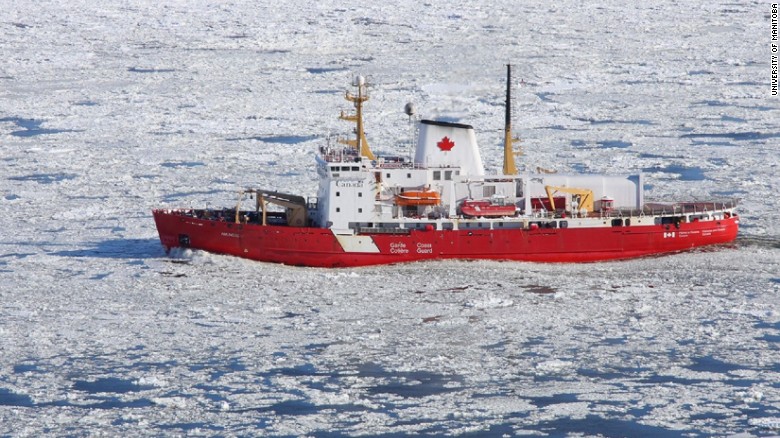It is coming faster than we can keep up. Climate shifts are now staying ahead of researchers. Unpredictable weather conditions are now more extreme than ever.
A massive climate change study is canceled ... because of climate change

The CCGS Amundsen, a Canadian research icebreaker
Story highlights
- Arctic sea ice has traveled farther south than normal along Newfoundland's northeast coast
- An icebreaker has been repeatedly diverted to take part in rescue operations
(CNN)A $17 million study of climate change in the Canadian Arctic has been nixed for now -- because of climate change.
A
team of scientists from the University of Manitoba and four other
schools were in the middle of the first leg of a four-year study of how
climate change is affecting the areas around the Hudson Bay, the university said in statement.
The study, named BaySys, started last month, and the scientists were
traveling on the Canadian Research Icebreaker CCGS Amundsen.
But
because of warmer temperatures in the Arctic, hazardous sea ice is
traveling farther south than usual. The Amundsen, which is part of the
Canadian Coast Guard fleet, has been diverted several times because its
ice-breaking capabilities have been needed to help out in rescue efforts
along Newfoundland's northeast coast. All of the delays and concerns
about safety forced the cancellation of the study's first leg.
"Considering
the severe ice conditions and the increasing demand for search and
rescue operations and ice escort, we decided to cancel the BaySys
mission," said Dr. David Barber, expedition chief scientist and BaySys
scientific lead. "A second week of delay meant our research objectives
just could not be safely achieved. The challenge for us all was that the
marine ice hazards were exceedingly difficult for the maritime
industry, the (Canadian Coast Guard) and science."
Barber
and his team confirmed that a large portion of the sea ice they were
seeing off Newfoundland's coast was indeed from the Arctic.
"Climate-related
changes in Arctic sea ice not only reduce its extent and thickness but
also increase its mobility meaning that ice conditions are likely to
become more variable and severe conditions such as these will occur more
often," Barber said.
The ironic
events won't scrap the entire project though. The study's second leg,
due to take off early next month, is still on, said fellow researcher
Dr. Louis Fortier, the scientific director of the Amundsen and
ArcticNet's science programs.

No comments:
Post a Comment